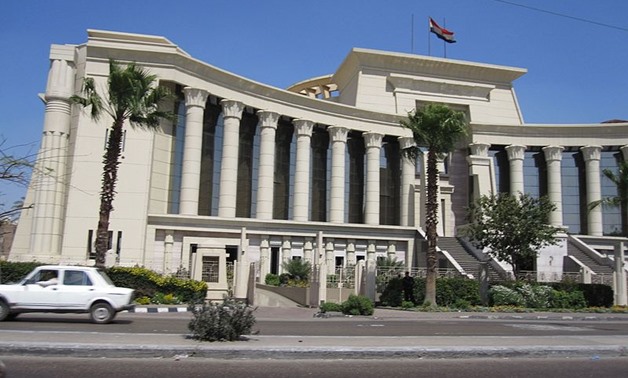
Supreme Constitutional Court of Egypt- CC via Wikimedia
CAIRO – 24 June 2018: First Vice-President of the Supreme Constitutional Court Hanafi Ali Jibali was elected as the chairperson of the court to succeed Abdel-Wahab Abdel-Razeq Hassan on Saturday.
Jibali, 69, was the presiding judge who ruled that the implementation of the disputed maritime border accord between Cairo and Riyadh on the two Red Sea islands (Tiran and Sanafir) is valid.
He graduated from Faculty of Law, Cairo University in 1975 and then obtained a Master's Degree in Common law in 1976 and another MA in Criminal Law in 1977 from Ain Shams University. In 1978, he obtained a PhD in common law from Ain Shams University.
In 1976, he was appointed as a prosecutor at the Egyptian General Prosecution. Two years later, he was appointed as a Judge-delegate at the State Council. Then, he was promoted to assume the position of a judge at the State Council in March 1982; seven months later, he was selected a member at the State Council Commissioner for the state’s president and the Cabinet.
In October 1982, Jibali was appointed as a judicial assistant at the Commissioner of Supreme Constitutional Court, and then got promoted in 1988 to a judge at the commissioner. In 1996, He was elected the head of the commissioner. In the period between 2001 and 2004, he assumed the post of a deputy to the head of the Supreme Constitutional Court.
He was seconded to work as an advisory judge at the Bahraini Constitutional Court in 2004 and as a judicial expert to Qatar in 1988.
The Supreme Constitutional Court decides if laws abide by the laid constitution, clarifies the legislative provisions that stir controversy, and considers any legislative disputes among different judicial bodies as well as contradictory court rulings
The Supreme Constitutional Court is the only judiciary body that is not subject to the recently-applied Law of Electing Heads of Judiciary Authorities, which allows the state's president to appoint the president of the country’s top judicial councils.
As per the Constitution, the head of the Supreme Constitutional Court shall be elected by the Court’s General Assembly.
Comments
Leave a Comment